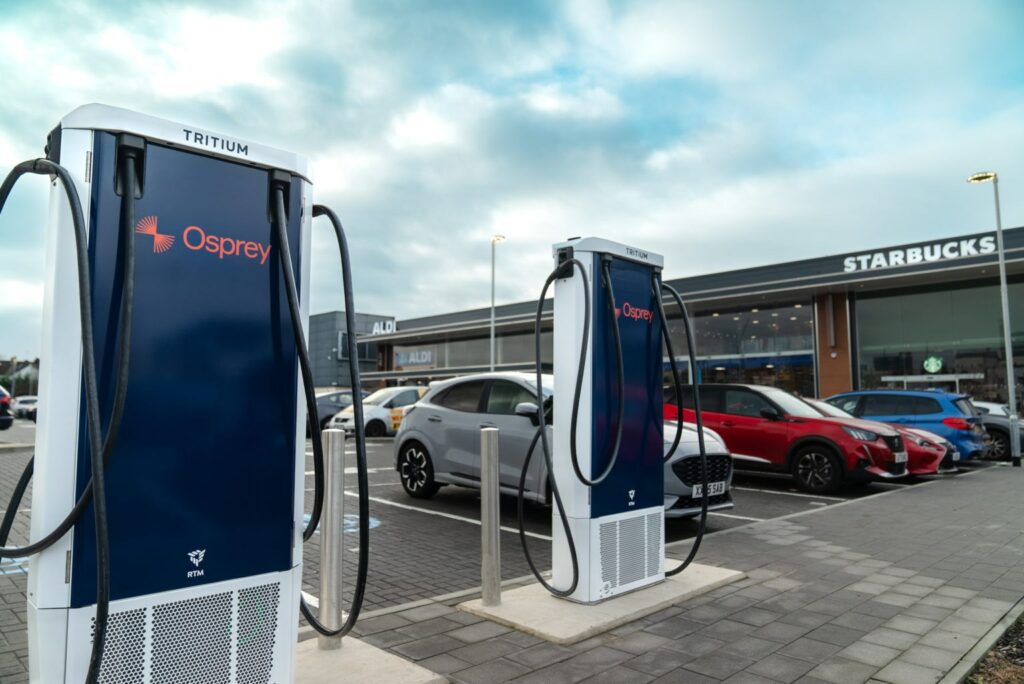Osprey Charging, a UK-based rapid EV charging network, has installed as many chargers in the first quarter of 2023 as it did during the whole of 2022.
The company said that from January to March 2023, 142 rapid Osprey EV charging stations went live in 10 weeks meaning the company now has around 536 rapid chargers, with a further 50 chargers set to be installed and made live in April.
Osprey said due to its expansion in 2023, it is now the fourth largest public rapid charging network with chargers across the UK. Osprey is looking to install four times as many chargers in 2023 as it did in 2022.
The network utilises load-balancing hubs to distribute available power in real time to cars as they need it. As a result, more chargepoints can be installed on a smaller grid connection than a traditional set up and no power is wasted.
Many technologies and sectors are being affected by grid constraints and connection delays, in particular those, like transport and heating, looking to decarbonise through electrification. EV chargers are facing delays, drawing concern ahead of the ban on the sale of new internal combustion engine (ICE) vehicles at the end of the decade.
“Looking ahead, we are set to continue this pace of roll-out and deliver on our business plan of achieving four times as many chargers in 2023 than we did in 2022,” said Ian Johnston, CEO of Osprey Charging Network.
2023 has seen a strong start for the EV charging sector. InstaVolt, an EV charging company, has achieved a “record” 80 rapid chargepoint installations in March in what was the firm’s “most active month to date”.
The newly installed chargers are located throughout the UK covering over 10 different regions; this includes the expansion of InstaVolt’s six-charger site in Bristol as well as the recently expanded Stroud Park rapid charging hub.






